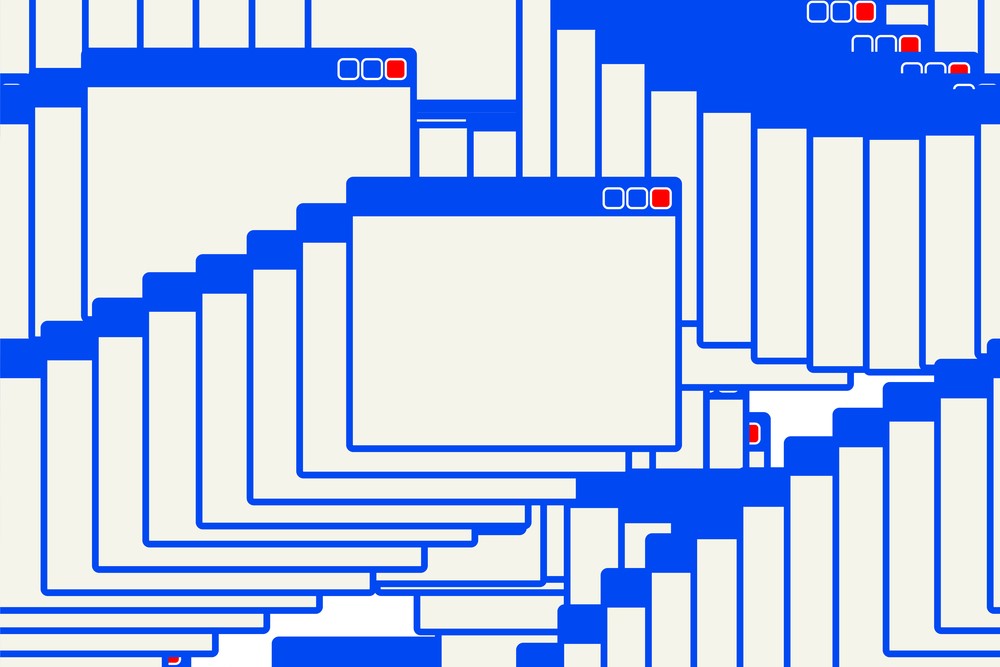There is a new Trump-helmed social media site being developed, and it’s been getting a lot of attention from the media. Called “Truth Social,” the site and associated app initially went up for only a few hours before it was taken offline due to trolling. Turns out, the site’s security was not exactly top-of-the-line: users were able to claim handles that you think would have been reserved for others – including “donaldjtrump” and “mikepence” – and then used their new accounts to post a variety of images that few people would want to be associated with their name.
This isn’t the first time a far-right social media site has been targeted by internet pranksters. Upon its release, GETTR, a Twitter clone founded by one of Trump’s former spokespersons, was flooded with hentai and other forms of cartoon pornography. While a defining feature of far-right social media thus far has been a fervor for “free speech” and a rejection of “cancel culture,” it is clear that such sites do not want this particular kind of content clogging up their feeds.
Those familiar with the internet will recognize posting irrelevant, gross, and generally not-suitable-for-work images on sites in this manner as acts of trolling. So, here’s a question: is it morally permissible to troll?
The question quickly becomes complicated when we realize that “trolling” is not a well-defined act, and encompasses potentially many different forms of behavior. There has been some philosophical work on the topic: for example, in the excellently titled “I Wrote this Paper for the Lulz: The Ethics of Internet Trolling,” philosopher Ralph DiFranco distinguishes 5 different forms of trolling.
There’s malicious trolling, which is intended to specifically harm a target, often through the use of offensive images or slurs. There’s also jocular trolling, actions that are not done out of any intention to harm, but rather to poke fun at someone in a typically lighthearted manner. While malicious trolling seems to be generally morally problematic, jocular trolling can certainly also risk crossing a moral line (e.g., when “it’s just a prank, bro!” videos go wrong).
There’s also state-sponsored trolling, which was a familiar point of discussion during the 2016 U.S. elections, wherein companies in Russia were accused of creating fake profiles and posts in order to support Trump’s campaign; concern trolling, wherein someone feigns sympathy in an attempt to elicit a genuine response, which they are then ridiculed for; and subcultural trolling, wherein someone again pretends to be authentically engaged, this time in a discussion or issue in order elicit genuine engagement by the target. Again, it’s easy to see how many of these kinds of acts can be morally troubling: intentional interference with elections, and feigning sincerity to provoke someone else generally seem like the kind of behaviors that one ought not perform.
What about the kinds of acts we’re seeing being performed on Truth Social, and that we’ve seen on other far-right social media apps like GETTR? They seem to be a form of trolling, but do they fall into any of the above categories? And what should we think about their moral status?
As we saw above, trolling captures a wide variety of phenomena, and not all of them have been fully articulated. I think that the kind of trolling I’m focusing on here – i.e., that which is involved in snatching up high-profile usernames and clogging up feeds with irrelevant images – doesn’t neatly fit into any of the above categories. Instead, let’s call it something else: protest trolling.
Protest trolling has a lot of the hallmarks of other forms of trolling – it often involves acts that are meant to distract a particular target or targets, and involves what the troll finds funny (e.g., inappropriate pictures of Sonic the Hedgehog). Unlike other forms of trolling, however, it is not necessarily done in “good fun,” nor is it necessarily meant to be malicious. Instead, it’s meant to express one’s principled disagreement with a target, be it an individual, group, or platform.
Compare, for example, a protest of a new university policy that involves a student sit-in. A group of students will coordinate their efforts to disrupt the activities of those in charge, an act that expresses their disagreement with the institution, governance, and/or authority figure. The act itself is intentionally disruptive, but is not itself motivated by malice: they are not acting in this way because they want others to be harmed, even though some harm may come about as a result.
While the analogy to the case of online trolling is imperfect, there are, I think, some important similarities between a student sit-in and the flooding of right-wing social media with irrelevant content. Both are primarily meant to disrupt, without specifically intending harm, and both are directed towards a perceived threat to one’s core values. For instance, we have seen how right-wing media has perpetrated violence, both in terms of violent acts and towards members of marginalized groups. One might thereby be concerned that a whole social network dedicated to the expression of such views could result in similar harms, and is thus worth protesting.
Of course, in the case of online trolling there may be other intentions at play: for example, the choice of material that’s been used to disrupt these services is clearly meant to shock, gross-out, and potentially even offend its core users. Furthermore, not every such action will have principled intentions: some will simply want to jump on the bandwagon because it seems fun, as opposed to actually expressing a principled disagreement.
There are, then, many tangled issues surrounding the intentions and execution of different forms of protest trolling. However, just as many cases of real-life protesting are disruptive without being unethical, so, too, may cases of protest trolling be potentially morally unproblematic.

